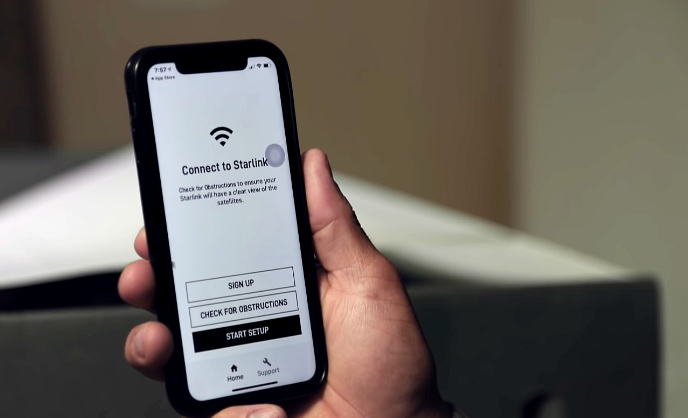SpaceX’s Starlink Cellular Service represents a groundbreaking initiative in the realm of global telecommunications. The space company is eagerly preparing to launch a satellite test for its Starlink cellular service later this year, although AT&T and an industry trade association are currently making efforts to impede this endeavor.
SpaceX is progressing through the FCC regulatory process to offer its services. Recently, they submitted a “special temporary authority (STA)” application to test a second-generation Starlink satellite, aiming for a December 1 launch.
The satellite is designed for “direct-to-cellular communications,” enabling unmodified cellular phones to connect directly to SpaceX Gen2 satellites. The test would involve sending data to smartphones using T-Mobile’s “PCS G-Block” radio spectrum, allowing SpaceX to quickly confirm the operational capabilities of their direct-to-cell satellites without waiting for the usual orbit-raising phase.
SpaceX initially submitted the STA application on October 2. However, this application has faced opposition from AT&T and the Rural Wireless Association, both of which filed regulatory complaints with the FCC last week concerning the upcoming test.
In May, both AT&T and the Rural Wireless Association expressed concerns to the FCC, insisting that SpaceX should provide more technical information about the Starlink cellular service and demonstrate its interference-free operation with other carriers.
Now, AT&T is arguing that SpaceX is pursuing the Starlink cellular test under an inappropriate regulatory process, suggesting that it should seek an experimental license from the Office of Engineering and Technology. The Rural Wireless Association concurs and emphasizes the need for SpaceX to prove the absence of interference before conducting real-world testing, suggesting that an experimental license from the FCC’s Office of Engineering and Technology would be the appropriate approach.
In response, SpaceX submitted an application for the test, citing FCC Chair Jessica Rosenworcel’s commitment, expressed in a February speech, to facilitate satellite companies in offering new broadband options to American customers.
SpaceX is urging the FCC to swiftly approve its STA, asserting that the claims raised by both AT&T and RWA lack a solid basis and fail to provide any substantial reasons for denying the application. SpaceX further emphasizes that an STA and an experimental license are technically equivalent, carrying no elevated risk of causing harmful interference, or any interference at all, to other spectrum users. SpaceX’s objective is to launch its Starlink cellular service for customers as early as next year. This service is positioned to compete with AST Space Mobile’s own cellular satellite system, in which AT&T is a partner.
(Source: Michael Kan | PC Magazine)









